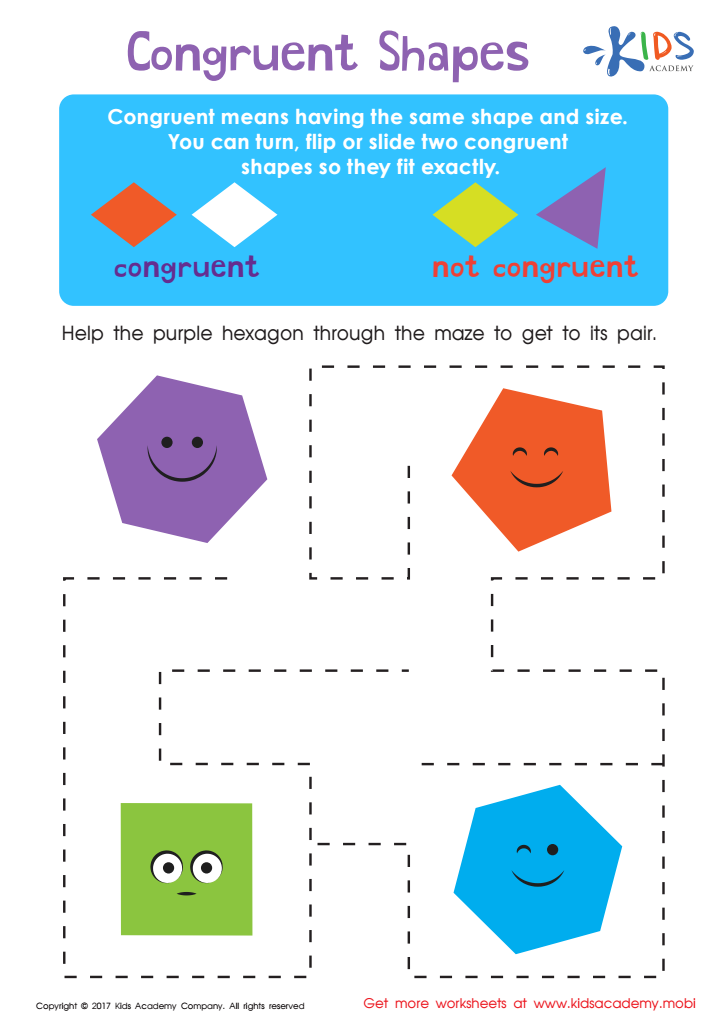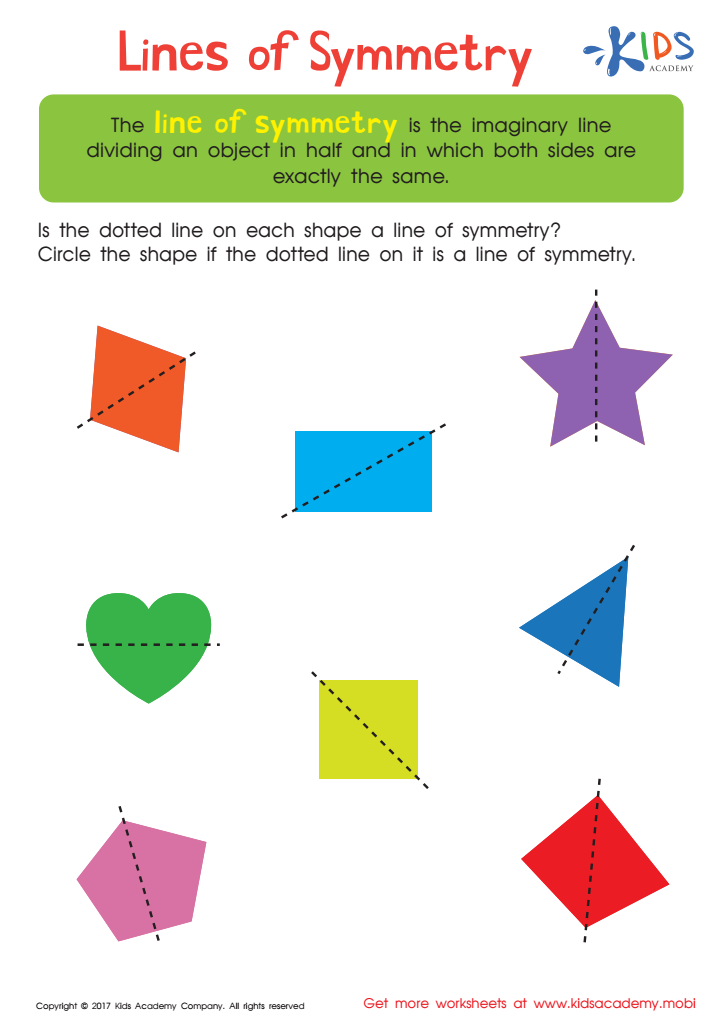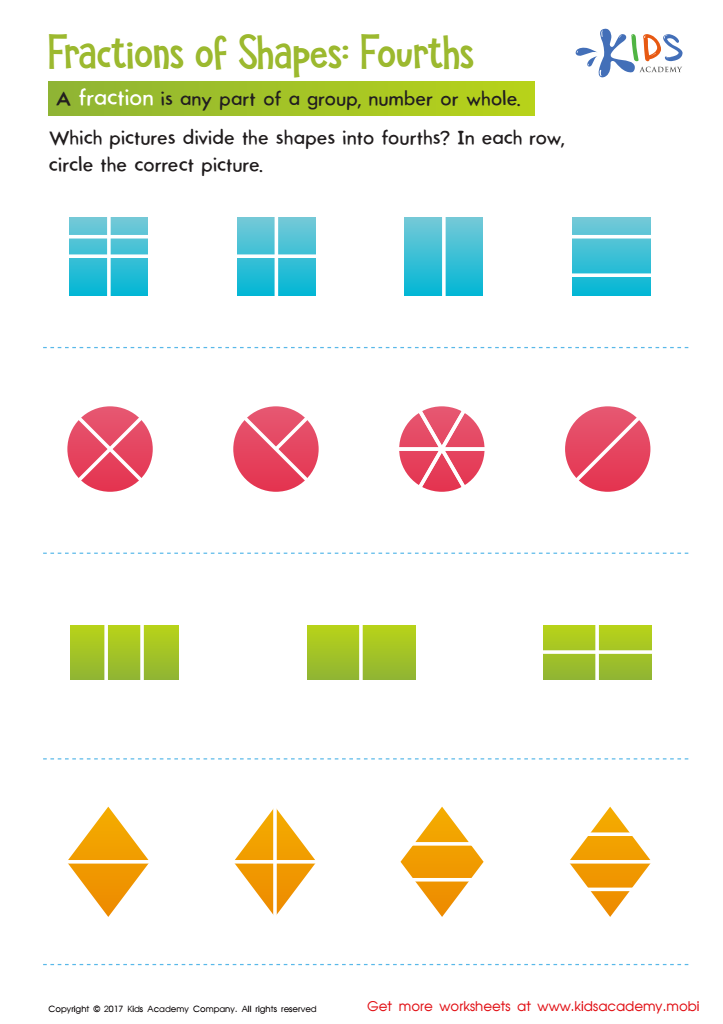Recognizing shapes Extra Challenge Geometry Worksheets for Ages 6-9
3 filtered results
-
From - To
Explore our "Recognizing Shapes Extra Challenge Geometry Worksheets" designed for ages 6-9! These engaging worksheets empower young learners to deepen their understanding of geometry by identifying, classifying, and distinguishing various shapes. With fun and interactive activities, children can enhance their shape recognition skills while developing critical thinking. Perfect for enriching classroom instruction or supplementing at-home learning, our worksheets cater to diverse learning styles. Watch as your child gains confidence in geometry through captivating challenges that make learning enjoyable! Suitable for both independent study and guided practice, these resources are a fantastic way to foster a love of math in early education. Download now!


Congruent Shapes Worksheet


Lines of Symmetry Printable


Fractions of Shapes Worksheet
Recognizing shapes is a fundamental skill in early childhood education, particularly for children aged 6-9. Parents and teachers should prioritize the "Recognizing Shapes Extra Challenge Geometry" because it lays the groundwork for essential mathematical concepts. Proficiency in identifying shapes aids in spatial awareness, which is crucial for understanding more complex subjects like geometry, measurement, and even algebra later on.
Additionally, shape recognition enhances critical thinking and problem-solving skills. By engaging children in fun and interactive activities involving shapes, adults can foster a love for learning and exploration. Such experiences not only stimulate cognitive development but also increase a child’s confidence as they tackle challenges independently.
Shapes also have real-world applications—understanding them helps children navigate their environment, contributing to early spatial reasoning skills necessary for everyday tasks from drawing to organizing their play spaces. Moreover, shape recognition encourages collaboration and communication, as children often work together in groups, discussing and exploring shapes.
Finally, by supporting activities like "Recognizing Shapes Extra Challenge," parents and teachers are creating a strong foundation for future academic success while nurturing creativity and curiosity in young learners. This aligns with holistic educational development, promoting both cognitive and social-emotional growth.
 Assign to My Students
Assign to My Students































